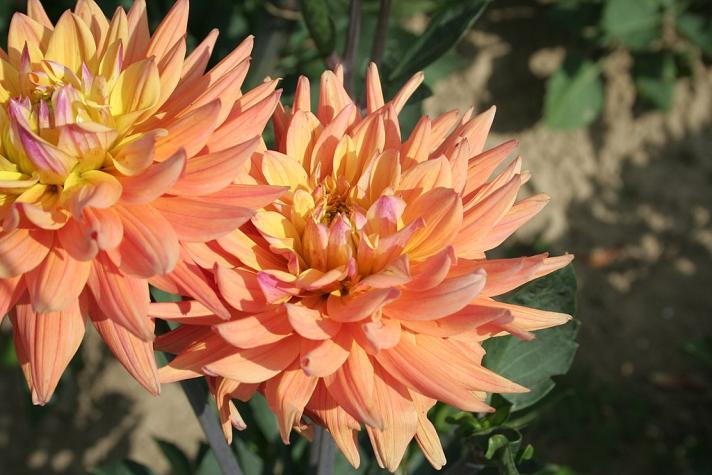SPRINGFIELD, Mo. – Dahlias, the national flower of Mexico, burst with fiestas of colors in late summer and early autumn when other flowers begin to fade.
These easy-to-grow annuals are popular choices for cut gardens or the backdrop of borders, says Kelly McGowan, University of Missouri Extension horticulturist.
Plant dahlias once the danger of frost passes for dazzling fall color. See MU Extension’s “Missouri Frost/Freeze Probabilities Guide” to find probabilities for your area.
A member of the aster family, dahlias need 6-8 hours of daily sun. Plant in fertile, well-drained soil high in organic matter. Use a fertilizer such as 5-10-10 that is high in phosphorus and potassium and low in nitrogen. Then in July, top dress with another application. McGowan suggests using one-half cup of fertilizer in a 2-foot-wide circle.
Plants grow quickly and need large amounts of water. Keep soil moist but not wet, McGowan says. Drip irrigation works well for dahlias.
Plants benefit from pinching back after the first growth of spring. Begin pinching back after the plants grow to a 12-inch height. A second pinching after emerging shoots achieve a length of 1 foot delays flowering but makes for a more spectacular display late in the growing season.
Tall varieties become lanky and require staking to remain upright, says McGowan. Another option is to cover plants with netting and thread the plants through the netting. Dwarf varieties do not need staking.
Two foliage diseases that affect dahlia are Botrytis blight (gray mold) and powdery mildew. Avoid these diseases by strict sanitation, proper site selection and keeping foliage as dry as possible. Fungicides containing thiophanate methyl also provide effective disease prevention.
Dahlias do not survive Missouri winters. After plants die back, dig the tuberous roots and cut off stems. Brush dirt from the roots and dust with a fungicide. Store in a dry material such as sawdust or newspaper. Some viral diseases such as dahlia mosaic can occur. Sanitation, insect control and selection of tolerant cultivars control these.
Find more information about dahlias and their care on the American Dahlia Society website.
McGowan and other MU Extension horticulturists discuss timely gardening issues during the “Weekly Garden Hour” held Wednesdays at noon via Zoom.
Register for the free virtual event and/or ask a gardening question. Sessions are also livestreamed.
Sign up for the Garden Spade, a free monthly gardening e-newsletter.
